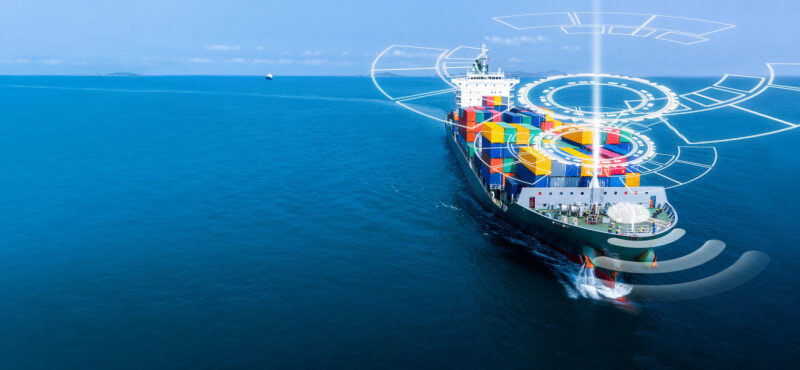The maritime industry has embraced digitalization and automation, leading to improved communication capabilities. Modern ships are equipped with advanced systems that facilitate real-time data exchange and automated reporting. This enables efficient communication between vessels, ports, and other stakeholders, streamlining operations and enhancing safety. In the near future, several trends are expected to shape the field of maritime communication.
For instance, with the increasing availability of internet connectivity at sea, vessels can now access the internet for a range of communication needs. These trends are driven by advancements in technology, increasing connectivity, and the growing demand for efficient and secure communication systems in the maritime industry. Here are some future trends to look out for:
- Satellite Communication
Satellite communication will continue to play a crucial role in maritime communication. Advancements in satellite technology will lead to improved bandwidth and coverage, enabling faster and more reliable communication services at sea. This will support various applications, such as voice and data communication, video streaming, remote monitoring, and real-time situational awareness.
- Internet of Things (IoT)
The maritime industry will increasingly adopt IoT technologies to connect various onboard devices, sensors, and systems. IoT-enabled maritime communication will enable data collection, analysis, and decision-making in real-time, enhancing operational efficiency, safety, and environmental sustainability. For example, IoT can be used for remote monitoring of ship systems, predictive maintenance, cargo tracking, and fuel optimization.
- 5G Connectivity
As 5G networks continue to be deployed worldwide, maritime communication will benefit from high-speed, low-latency connectivity. Ships will be able to access 5G networks near coastal areas, providing faster and more reliable internet connectivity for crew members, passengers, and onboard systems. 5G will also support emerging technologies like virtual and augmented reality for enhanced training, maintenance, and remote collaboration.
- Cloud Computing and Big Data Analytics
Maritime companies will leverage cloud computing platforms and big data analytics to process and analyze large volumes of data collected from ships, ports, and other maritime assets. Cloud-based solutions will facilitate data storage, collaboration, and real-time access to information from anywhere, improving decision-making, operational efficiency, and cost optimization.
- Cybersecurity
With the increasing reliance on digital systems and connectivity, cybersecurity will become a critical aspect of maritime communication. The industry will invest in robust cybersecurity measures to protect against cyber threats, data breaches, and unauthorized access. This includes implementing advanced encryption techniques, intrusion detection systems, and training programs to raise awareness among crew members about cyber risks.
- Autonomous Shipping
The rise of autonomous ships will require advanced communication systems to support remote monitoring and control. Maritime communication will need to adapt to the unique requirements of autonomous vessels, including seamless integration with autonomous navigation systems, reliable data exchange, and effective communication between autonomous ships and shore-based control centers.
- Blockchain Technology
Blockchain technology has the potential to revolutionize various aspects of maritime communication, including supply chain management, cargo tracking, and document verification. Blockchain can enhance transparency, security, and traceability in maritime transactions by providing an immutable and decentralized ledger. This technology can help reduce fraud, streamline operations, and improve trust among stakeholders.
Premier Radio Communication Solutions
These trends represent the evolving landscape of maritime communication, driven by the need for improved efficiency, safety, and connectivity in the maritime industry. As technology continues to advance, we can expect further innovations that will shape the future of communication at sea.
At Highland Wireless, we keep up with every change and development in the maritime communication industry to offer the best service to our customers. If your vessel needs an equipment upgrade, our Marine Communication Consulting Division can devise a detailed plan while keeping your budget and goals in mind. For more information on our services, call or email us today!

